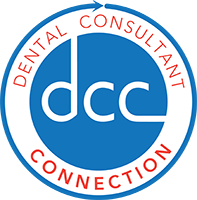Katherine Eitel shares some great advice on efficient and effective scheduling in the dental practice
I read once that 25% of the population has an assertive enough personality to speak up and tell you what they want. The remaining 75% will go where you lead them… if you lead them.
Having an appointment schedule that is pre-designed in advance to work well for the dentist, the dental team, and the practice is a benefit to patients. The practice runs on time, is efficient and effective, and rarely has the feeling of “burn-out.” It makes sense to steer the patient into a time slot that works best for the practice because this will ultimately work better for the patient.
We know from the statistic above that most patients will schedule where you would like them. We also know this from practical examples: Orthodontists would never see any patients before 3:00 p.m. if they were not good at this skill … and patients would not comply. Elective surgeries would never be done any day but Friday if hospitals and surgeons were not good at this skill … and patients were not willing to comply. It’s a matter of confidence and skill.
Assuming the practice already uses a good block-scheduling template, I recommend using what trainers call an “alternate-of-choice” communication technique such as, “Mrs. Campbell, Dr. Smith could see you for that appointment either Thursday at 11:00 or Monday at 1:00. Which would fit your schedule best?
Eliminate these phrases from your vocabulary: “Would you like to schedule that now?” “Did you want to get that scheduled?” “Are you ready to schedule that appointment?” Knowing that 1 out of 4 people will tell you if they don’t want to schedule… you have very little to lose by assuming the appointment.
I also do not recommend the phrases, “Do you prefer mornings or afternoons?” or “Which day of the week is better for you?” Remember, 25% of patients will tell you if they need a particular day or time, but 75% of the time you’ll be able to steer the patient into an appointment time that works best for you (even if they would have never picked it!) One more scheduling tip: Always start with your hardest-to-fill-times first and work out from there.
Take the lead with scheduling conversations. Patients will appreciate your confidence and finesse, and your schedule will improve.
Learn more about Katherine Eitel on the Dental Consultant Connection website www.dentalconsultantconnection.com
Reprint of the Monday Morning Stretch, 01/07/12 http://lionesslearning.wordpress.com/

